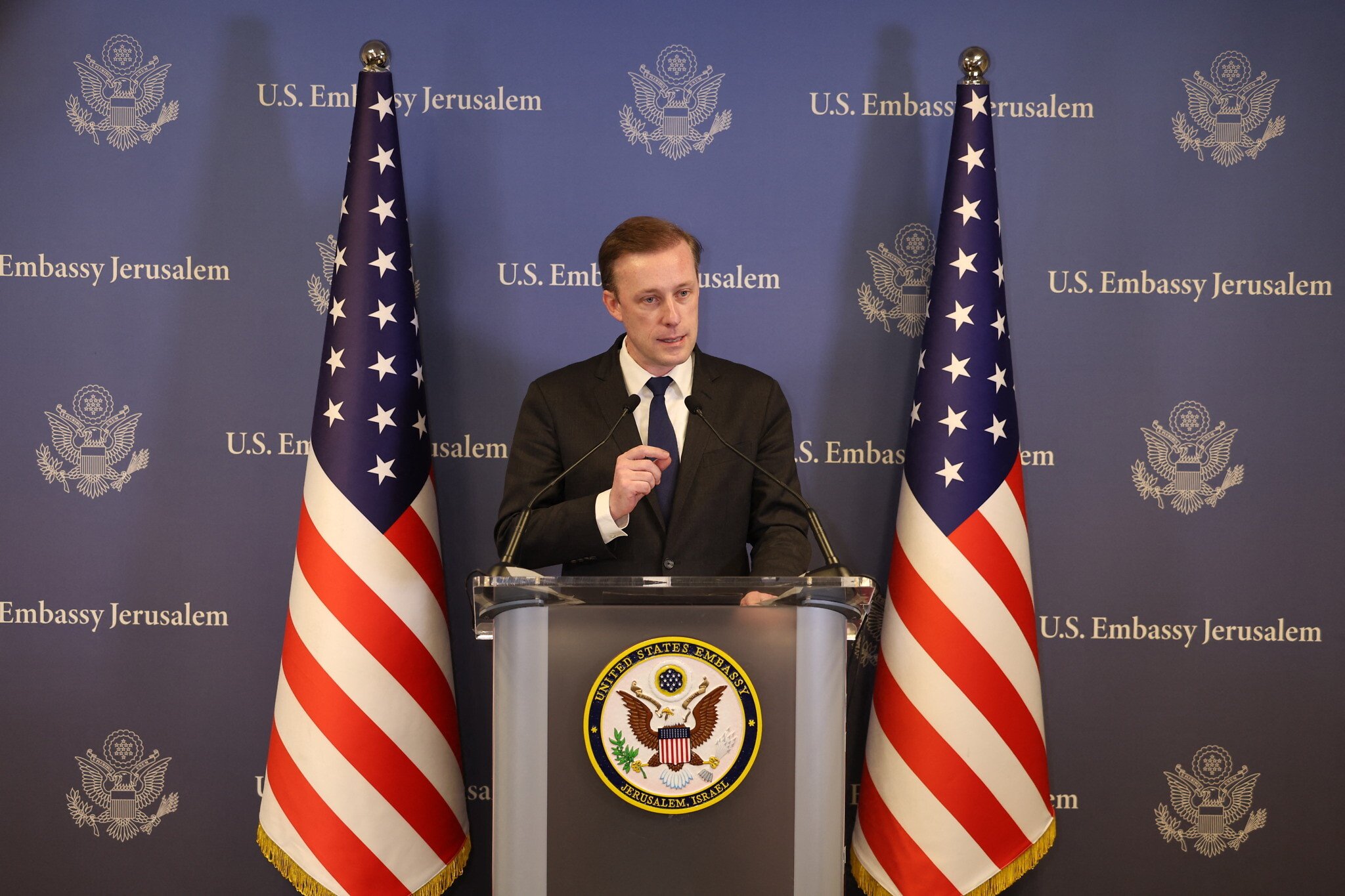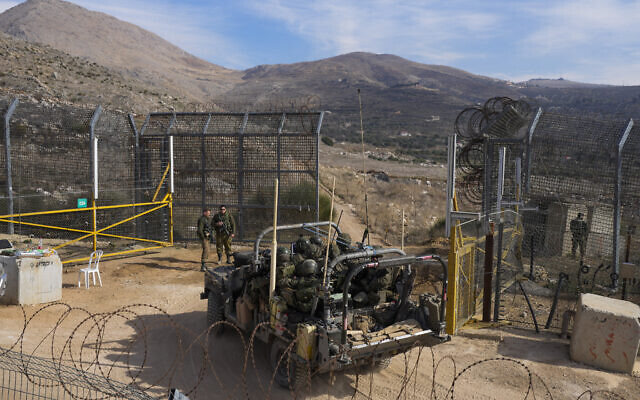



Prime Minister Benjamin Netanyahu “is ready to do a deal,” said US National Security Adviser Jake Sullivan on Thursday during his seventh trip to Israel in his current role, adding that talks to secure a Gaza ceasefire and hostage release are at “a point where it could get done.”
Speaking to reporters at a Tel Aviv press conference after meeting with Netanyahu earlier in the day, Sullivan rejected the premise that the prime minister was stalling to secure a deal when US President-elect Donald Trump enters office next month: “No, I do not get that sense.”
The US national security adviser — who will also visit Egypt and Qatar, key mediators, during this trip — said that talks to secure a deal are at “a point where it could get done.”
The sides are “close,” he said, and now it is a matter of “bridging that final distance.” He attributed recent progress to the ceasefire with Hezbollah in Lebanon, the fall of the Syrian regime, and Israel’s military success against Hamas and its leadership.
“The surround sound of these negotiations is different today than it has been,” he said, with Hamas’s posture changed and the group more isolated with the weakening of the Iranian axis.
“When I go to Doha and Cairo, my goal will be to put us in a position to be able to close this deal this month,” he added. “I wouldn’t be here today if I thought this thing was just waiting until after January 20.”
Sullivan averred that what “we need to do is get into the initial phase” of a deal, “begin to produce the actual releases, the images of hostages being welcomed home to their families, as we saw during the [November 2023] release,” a weeklong truce during which 105 hostages taken captive by Hamas on October 7, 2023, were freed and 150 Palestinian prisoners were freed from Israeli jails.
“And then the terms of the deal are built on the idea that there will be ongoing discussions, diplomacy, negotiations to move from phase one to phase two,” said Sullivan, adding that “the basic elements of and the basic framework of [US President Joe Biden’s May proposal] are still alive and part of the discussions that are happening today.”
Sullivan asserted that both sides and the Biden and Trump administrations want “to see this ceasefire and hostage deal and see it now, that is all part of the American contribution to an effort to ultimately produce an outcome here.”
He said the US still believes that three of the seven American hostages in Gaza are alive, though, it does not have definitive proof.
Sullivan also said that Israeli military achievements in recent months have contributed to a potential deal: “Hezbollah can never again rebuild its terror infrastructure to threaten Israel, he said. “Hamas’s leaders are gone, including the terror masterminds of October 7. “Now the Assad regime in Syria is gone.”
When Biden said “Don’t,” Sullivan argued, “this is what he meant.”
“The balance of power in the Middle East has changed significantly,” Sullivan declared. “Israel is stronger, Iran is weaker.”
Turning to Syria, Sullivan offered support for recent Israeli military actions in the country following the fall of Assad.
“What Israel is doing is trying to identify potential threats, both conventional and weapons of mass destruction that could threaten Israel, and, frankly, threaten others as well, and neutralize those threats,” he said.
“That is part of its effort to protect the country in the midst of a very fluid situation,” Sullivan added, adding that the US is “in deep consultation with the Israeli government.”
Asked whether he believes Netanyahu after the premier said Israel’s takeover of the buffer zone separating Israel from Syria would be temporary, Sullivan said he takes Netanyahu at his word.
Sullivan said he was visiting Israel in order to “capitalize on the opportunity of the fall of Assad for a better future for the people of Syria, while vigilantly managing the risks that come with the change in Syria.”
He said that the US “remains vigilant against the continuing threat from Iran, including the threat from its nuclear program.”
Addressing the White House transition to the Donald Trump administration, Sullivan said he has been “engaging my successor, the incoming national security adviser [Mike Waltz], in a professional and serious way on all of the issues that affect the State of Israel, the threats and the opportunities.”
He said the conversations have been “constructive and substantive.”



